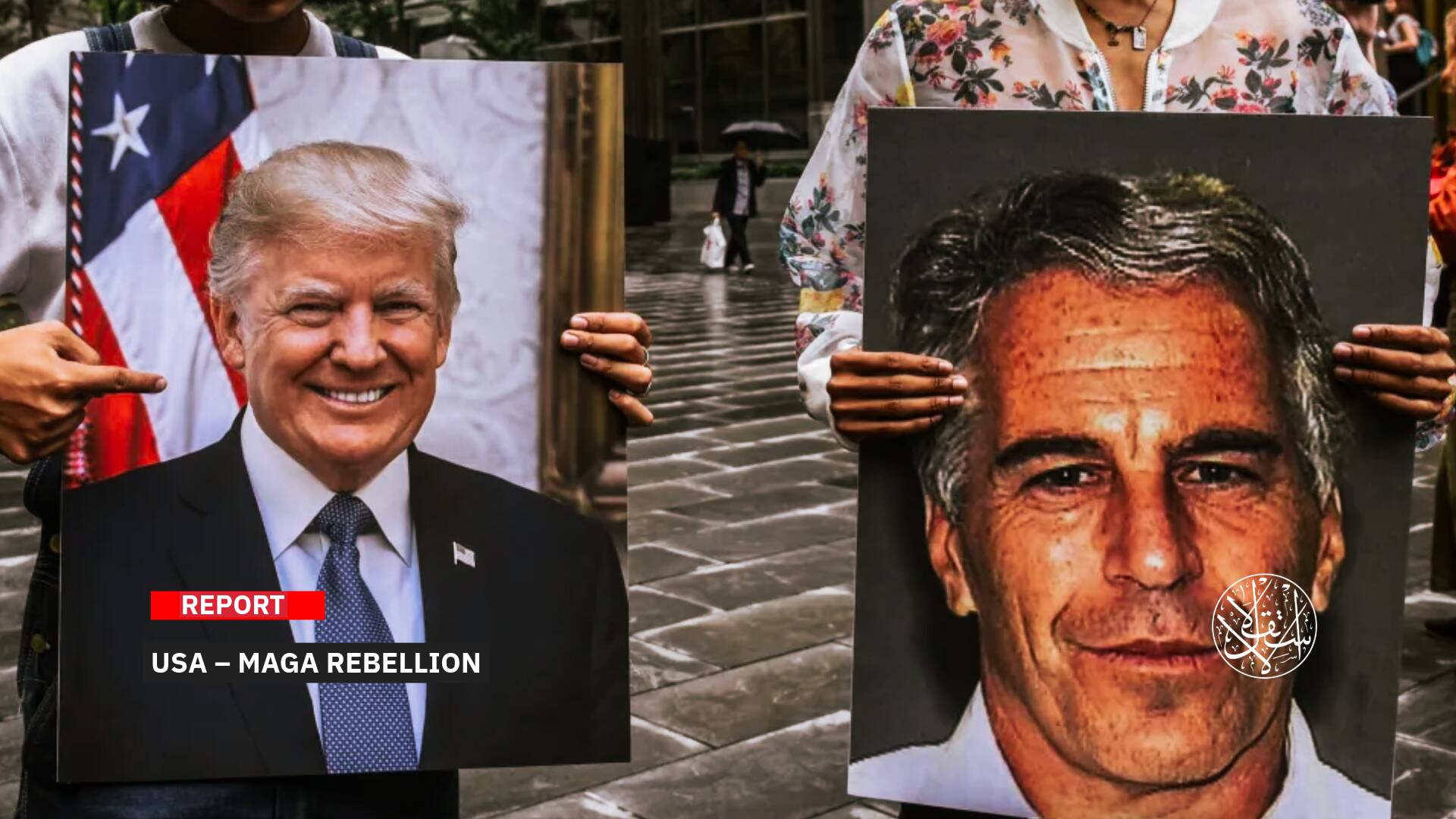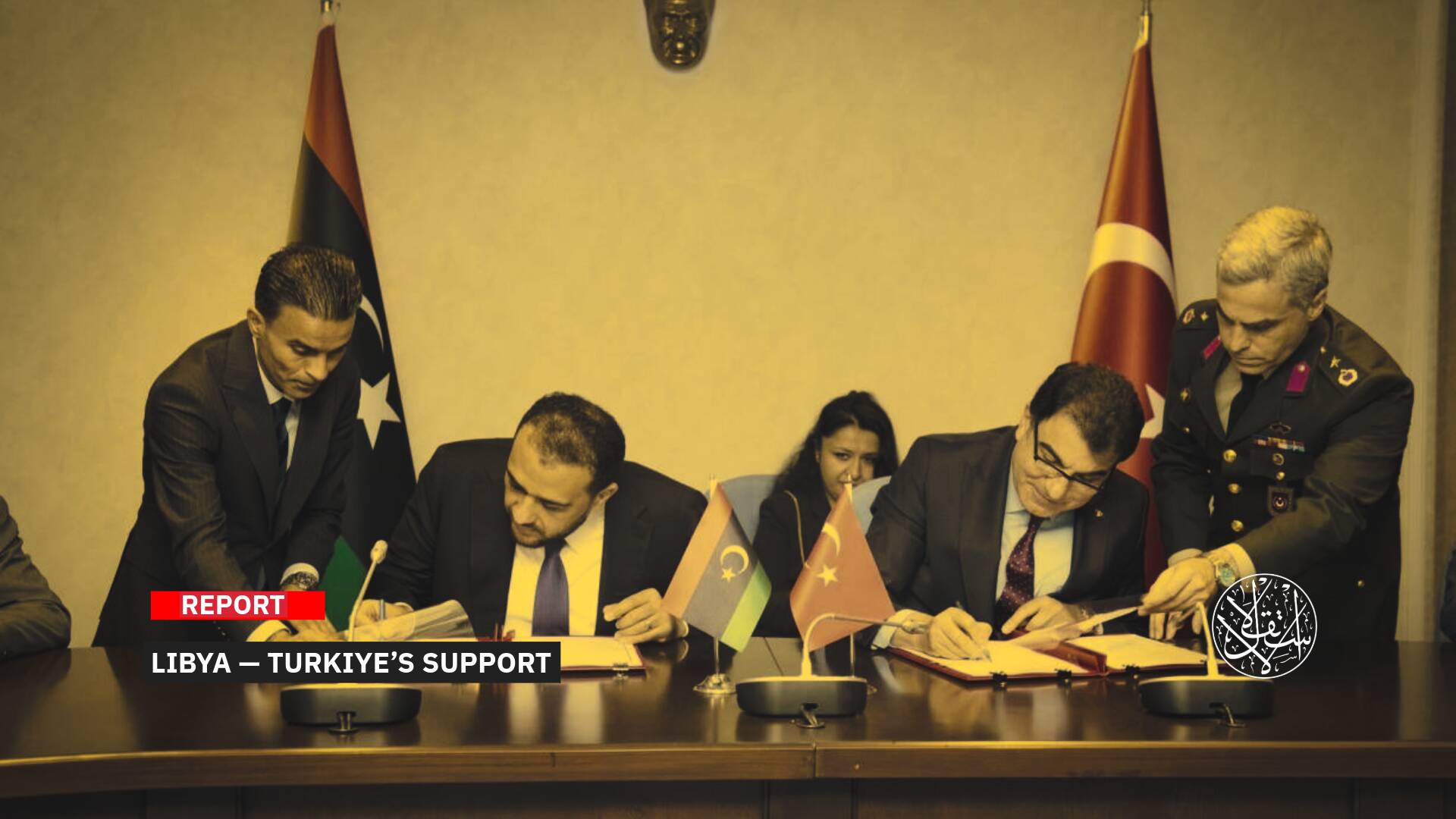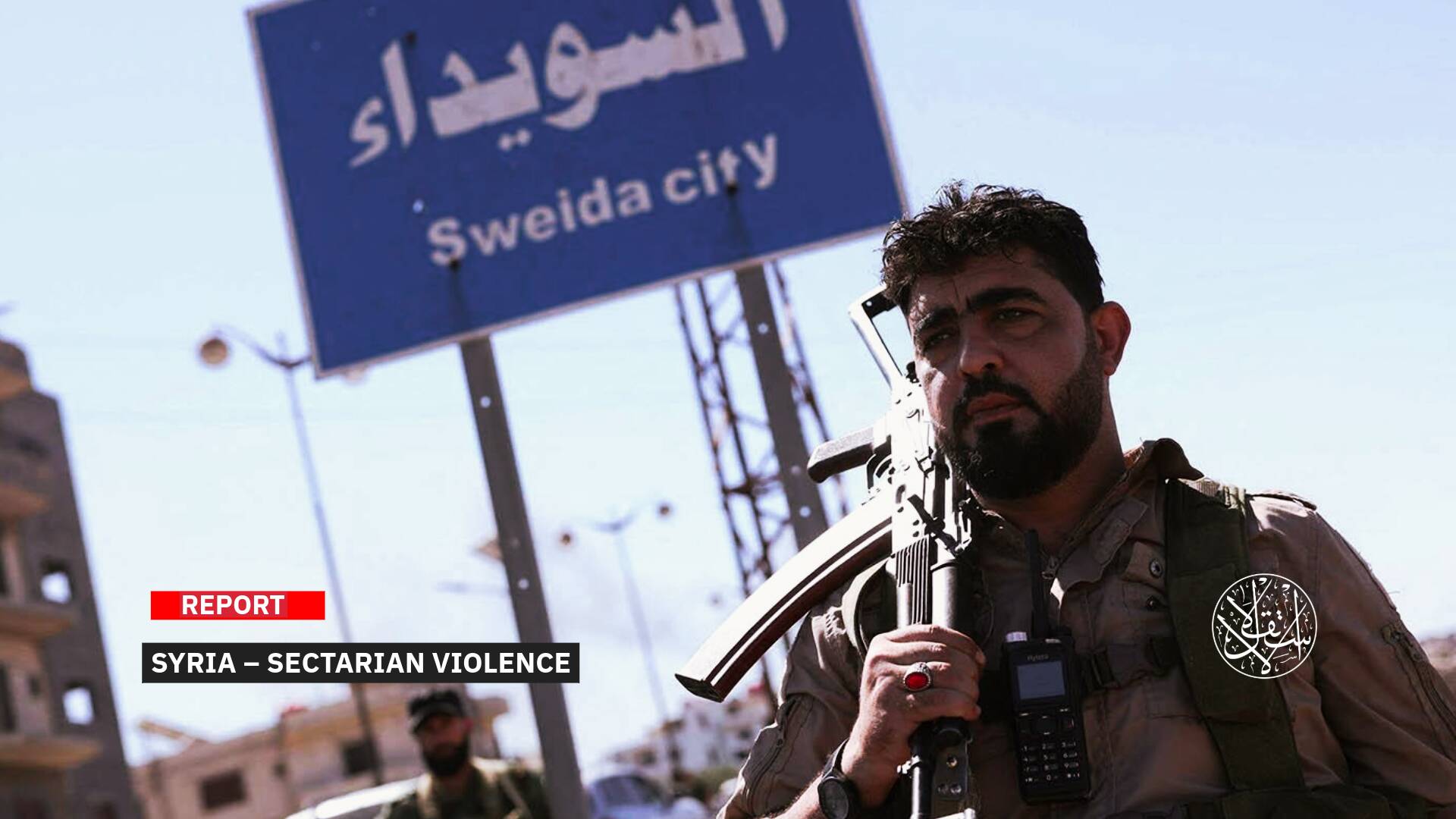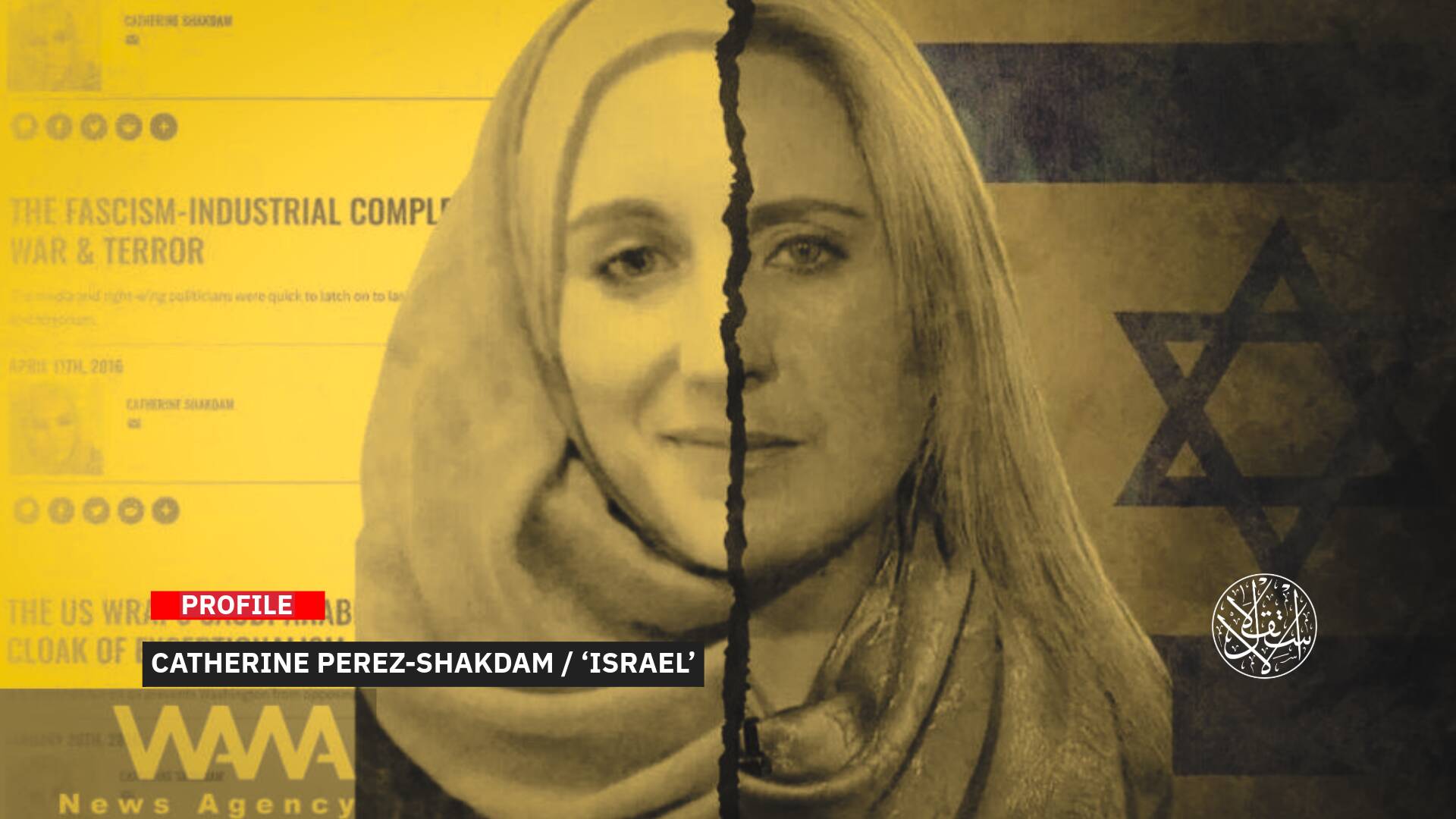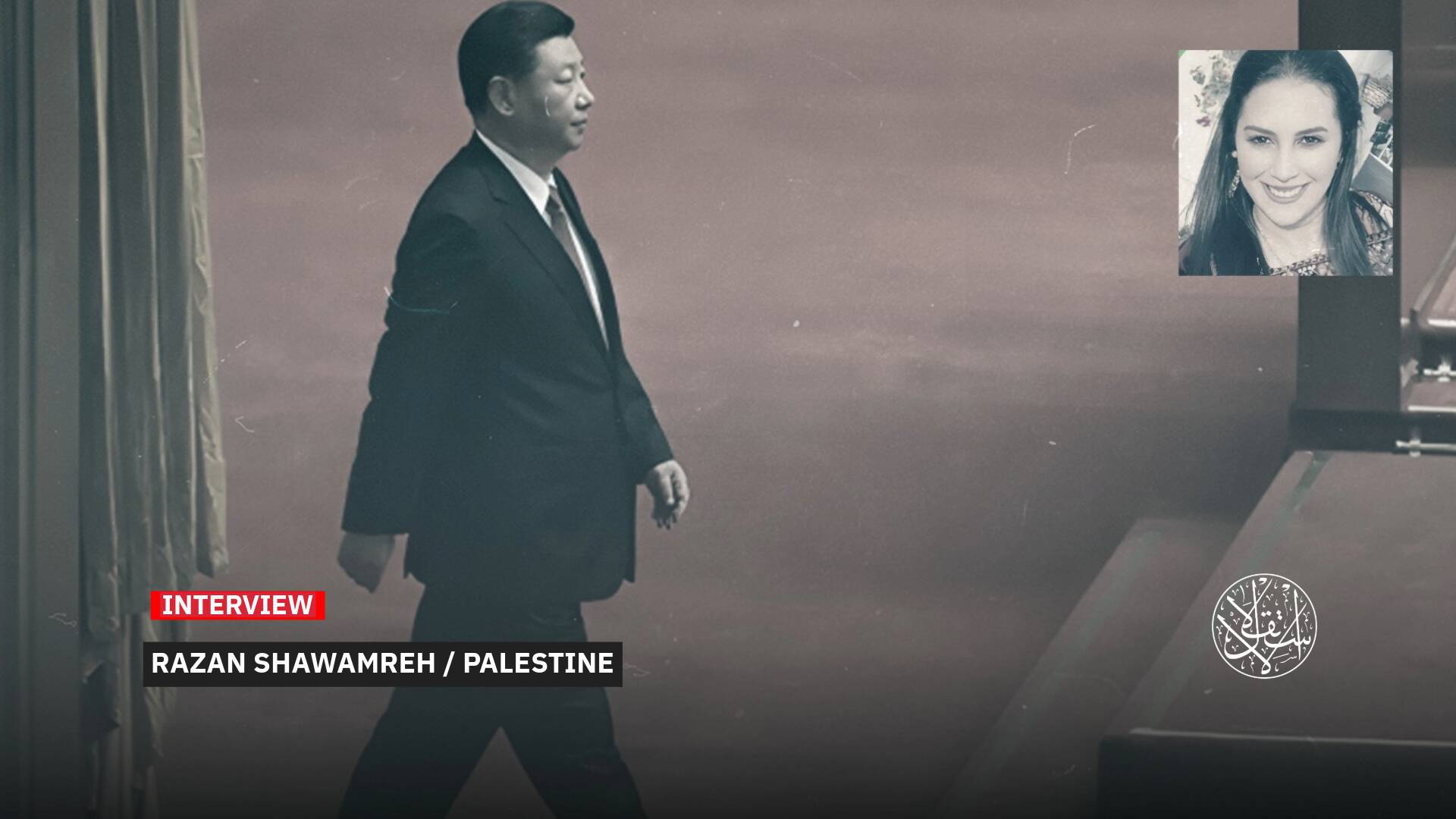Mohamad Bin Salman’s ‘Openness Plan’ and Its Relation With Controversy Over ‘Niqab’
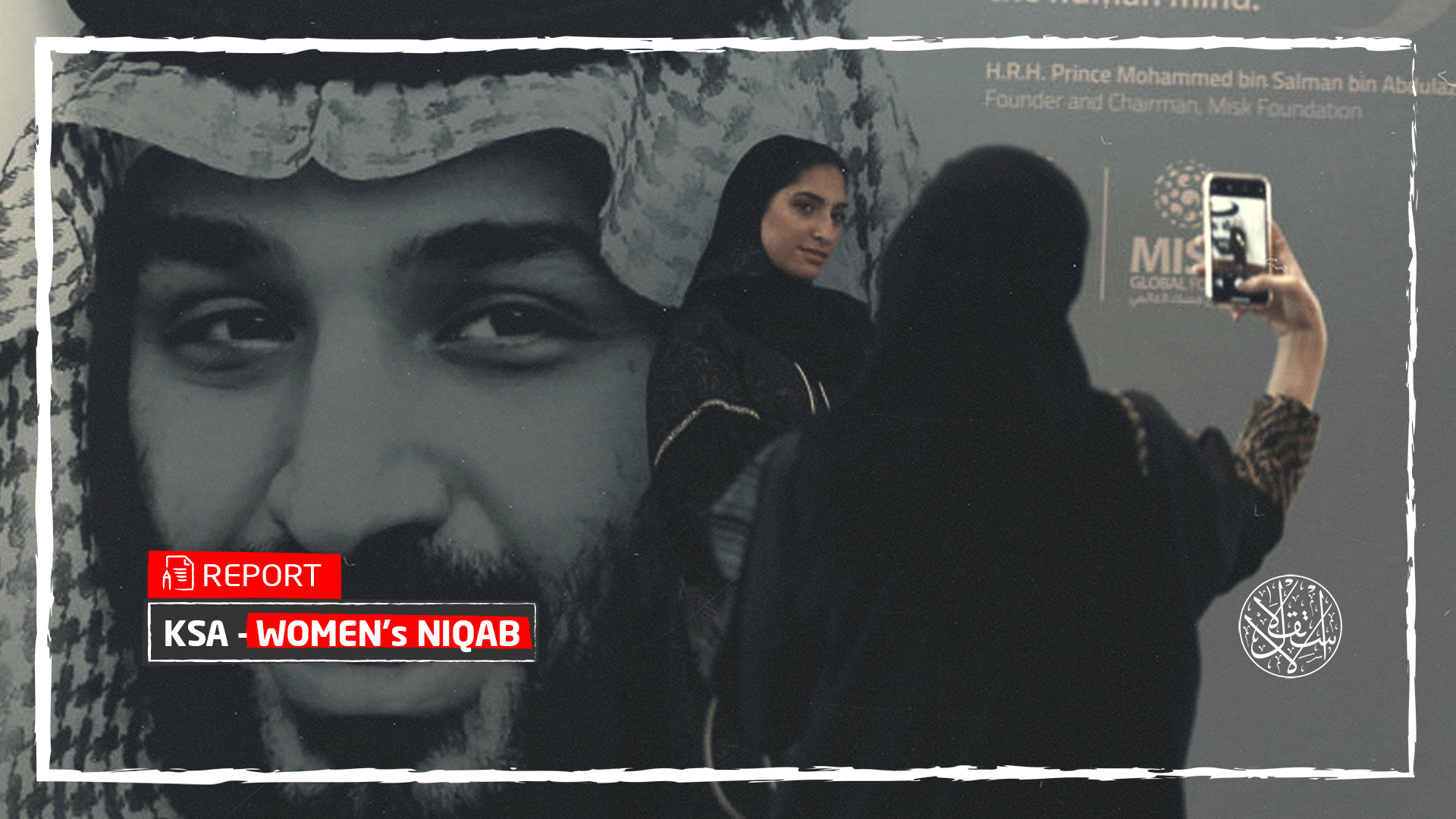
The issue of Saudi women wearing the niqab (face covering) returned to the forefront of social media issues through the hashtag (Down with the Niqab), the controversy raged between a supporter of the demands to abolish the religious and social imposition of the niqab on Saudi women, and a rejection of those calls, which reflects a clear division between the liberal and conservative currents in the Kingdom of Saudi Arabia.
These demands and calls, which are repeated periodically, coincide with the open orientation adopted by the Kingdom in recent years and the start of implementing the “Vision 2030” of Crown Prince Mohammed bin Salman.
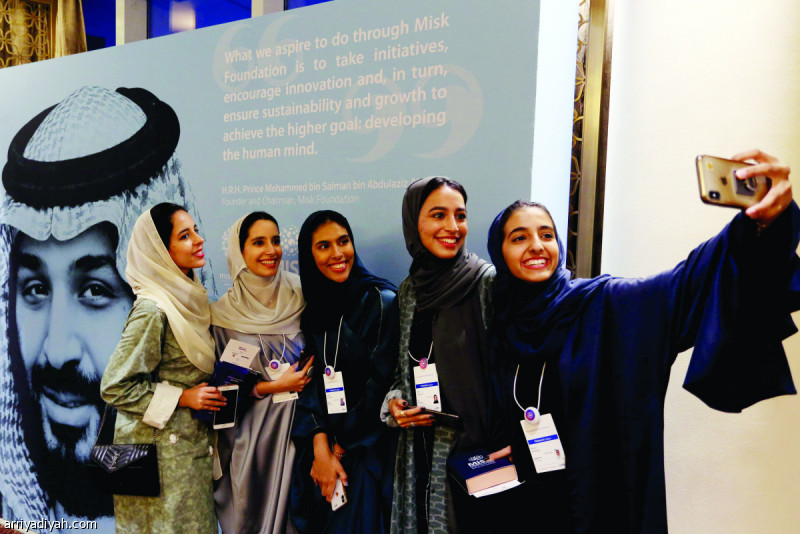
Saudi Women's Niqab
The hashtag #DownWithTheNiqab topped the social media in the Kingdom of Saudi Arabia. Tweeters launched the campaign, calling for the freedom of Saudi women to choose their appearance and not obligating them to wear a certain wear.
More than 52,000 Saudi Twitter users participated in the campaign, the participants were divided between supporters of the abolition of the obligation of Saudi women wearing the niqab, and others condemning the campaign and skeptical of its intentions and its source.
According to a report published by the “Center for Global Women's Leadership” at Rutgers University, Twitter is the most influential social media in Saudi society, and that more than 40% of the application users in Saudi Arabia are women, most of the accounts are obscure, and tweets are posted in both Arabic and English.
This is not the first time that similar campaigns have spread on social media in Saudi Arabia since Saudi Crown Prince Mohammed bin Salman announced the “openness plan” within the framework of his vision for 2030. Saudi women began demanding freedom from the niqab and the abaya (a full-length dress), via participating in recent years in campaigns to express their refusal to wear the abaya and the niqab.
In 2019, the campaign to burn the niqab launched by Saudi women activists also sparked controversy on social media, this is in a call from them to support the liberation of women from the restrictions imposed on them by society and the authorities alike.
However, the official authorities in the Kingdom of Saudi Arabia did not issue any decision in response to all the repeated campaigns over the past years, which aimed to drop the obligation of Saudi women to wear the niqab.
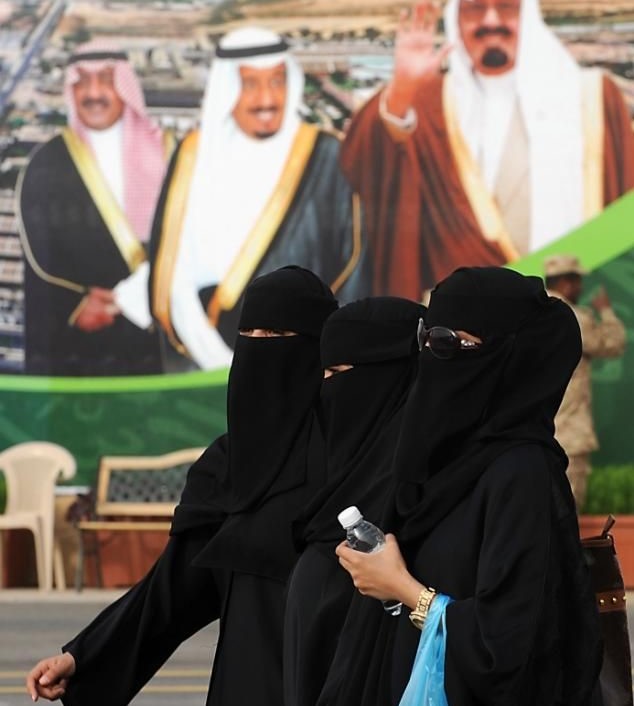
Various Reactions
Saudi Tweeters participated in the campaign and demanded that women be given the full right to choose their wear and reject any form of societal guardianship on them and their personal freedom, and they demanded that down with the Niqab for those who wear it out of fear of people only.
Others, however, called for giving Saudi women the opportunity to experience the openness to the world, considering the niqab and the ‘abaya’ is an imposed matter by society and not an optional thing, and describing the niqab as an obliteration of personal freedoms.
Saudi women tweeters expressed their pride to wear the niqab, and they demanded to leave personal freedom for those who wear the niqab in order to choose what they wear.
While some associate the niqab with the Taliban, they invited Saudi women who wanted to wear the niqab to go away to Afghanistan.
Some of the tweeters also indicated that dropping the niqab is unacceptable and does not fit social heritage and public custom in Saudi Arabia, and it is a contravention of the legal decisions and a violation of the Islamic wear.
Tweeters believe that the Saudi government spends a lot of money trying to manipulate and control the trend of the hashtag in Saudi Arabia, in order to achieve what it seeks after the heated debate about it by those who interact with the issue.
While others believe that the campaign is not emanating from Saudi Arabia; Rather, it is motivated by parties outside the Kingdom who seek to disrupt the faith and principles on which Saudi women were raised thousands of years ago.
This was pointed out by the Saudi writer, Saud Al-Fozan, who was among the attackers of the niqab and the abaya in the Kingdom, and who described them as heresy.
Al-Fozan wrote on his Twitter account: “The black abaya is not Arab, and its source is the Ottomans, it was imposed on Egypt, the Levant, and the Hijaz, then it penetrated to Najd, and the rest of the Gulf states.”
He also added in another tweet: “The niqab came to us from Kuwaiti women during the Gulf crisis, it is heresy, and there is no verse in the Qur’an that compels women to drop the niqab or wear it.”
The famous #Saudi ���� writer Saud Al Fozan:
— This is Saudia (@simplysaudia) September 9, 2021
"Niqab (face covering) for women came to #SaudiArabia ���� culture from #Kuwait ���� during #Gulf crisis, there is no proof of it being compulsory to wear or not to wear in Islam" #سعود_الفوزان #السعودية #الشرق_الاوسط #الوطن #يسقط_النقاب pic.twitter.com/ElvzqPaHgS
As the Kingdom is gradually trying to get rid of the legacy of the “Sahwa Period”, these are the past four decades, when controversial religious thought prevailed, and was led by closed religious figures with remarkable social and political influence.
On her part, Najwa, a 55-year-old Saudi woman, told Al-Estiklal: “We grew up in a country that is very committed to the Islamic faith. Thus, wearing the abaya and the niqab has become an essential part of our lives. As our mothers and grandmothers used to do in order to ward off sedition.”
Meanwhile, Rasha, a 22-year-old Saudi girl, said in a statement to Al-Estiklal that: “The niqab and the abaya are traditions and social customs and they are not among the religious duties that Islam has imposed on us to wear.”
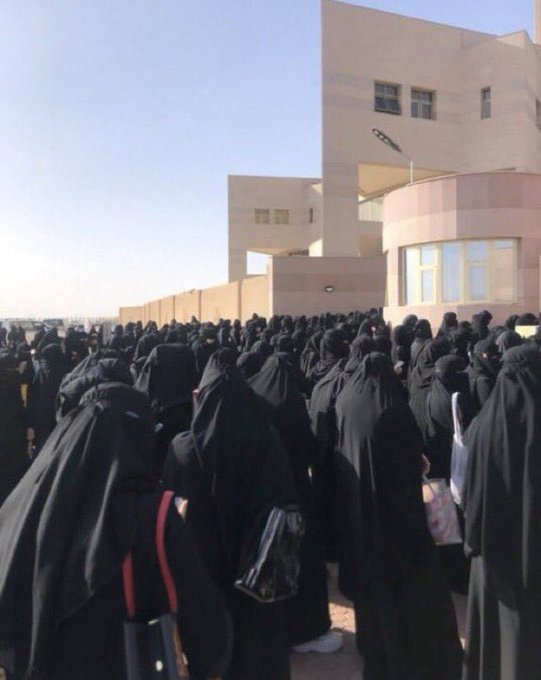
Bin Salman’s Conspiracy
It is noteworthy that the General Court in the Kingdom took an unprecedented decision in December 2017. where it abolished the requirement to wear the niqab for women lawyers who wished to enter the court, with only obligating them to wear the hijab (head covering).
In February 2018, the statement of Sheikh Abdullah Al-Mutlaq, a prominent member of the Council of Senior Scholars, sparked controversy, and his call not to compel women to wear the abaya, emphasizing that what is required is to cover up, whatever the shape or color of the wear. In a statement, the first of its kind, issued by a prominent cleric in the Kingdom, it is in line with the recent changes in the Kingdom.
Bin Salman, had commented on the issue in an interview in March 2018, and said that “the law is very clear, and it is under Sharia that women wear decent and respectful wear like men.”
“Saudi women are no longer obligated to wear the black abaya or head covering,” he added.
In December 2018, Issa Al-Ghaith, a member of the Shura Council in Saudi Arabia, commented on the niqab issue, saying: “Hijab is obligatory, as for the niqab, it is a matter of doctrinal discretion. There is no law that requires wearing it or taking it off, and it is personal freedom.”
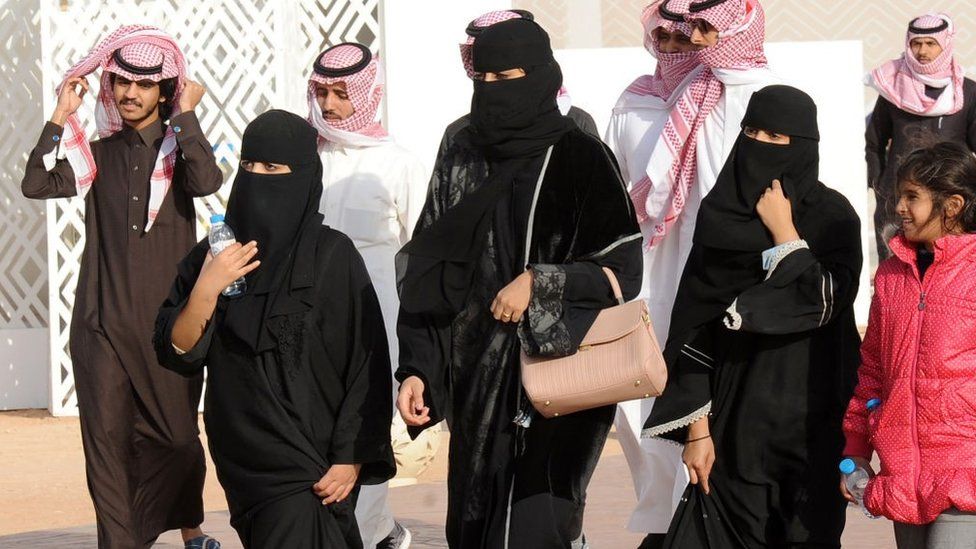
It is worth noting that the niqab is one of the well-established components of the social customs and traditions in the Kingdom of Saudi Arabia. The niqab in it was almost obligatory for decades, as was the case with the abaya, which for decades was a symbol that should not be abandoned, and a manifestation of religion that should not be bypassed.
Also, in 2016, Saudi authorities detained a woman because she took off her abaya on a main street in Riyadh, according to local media.
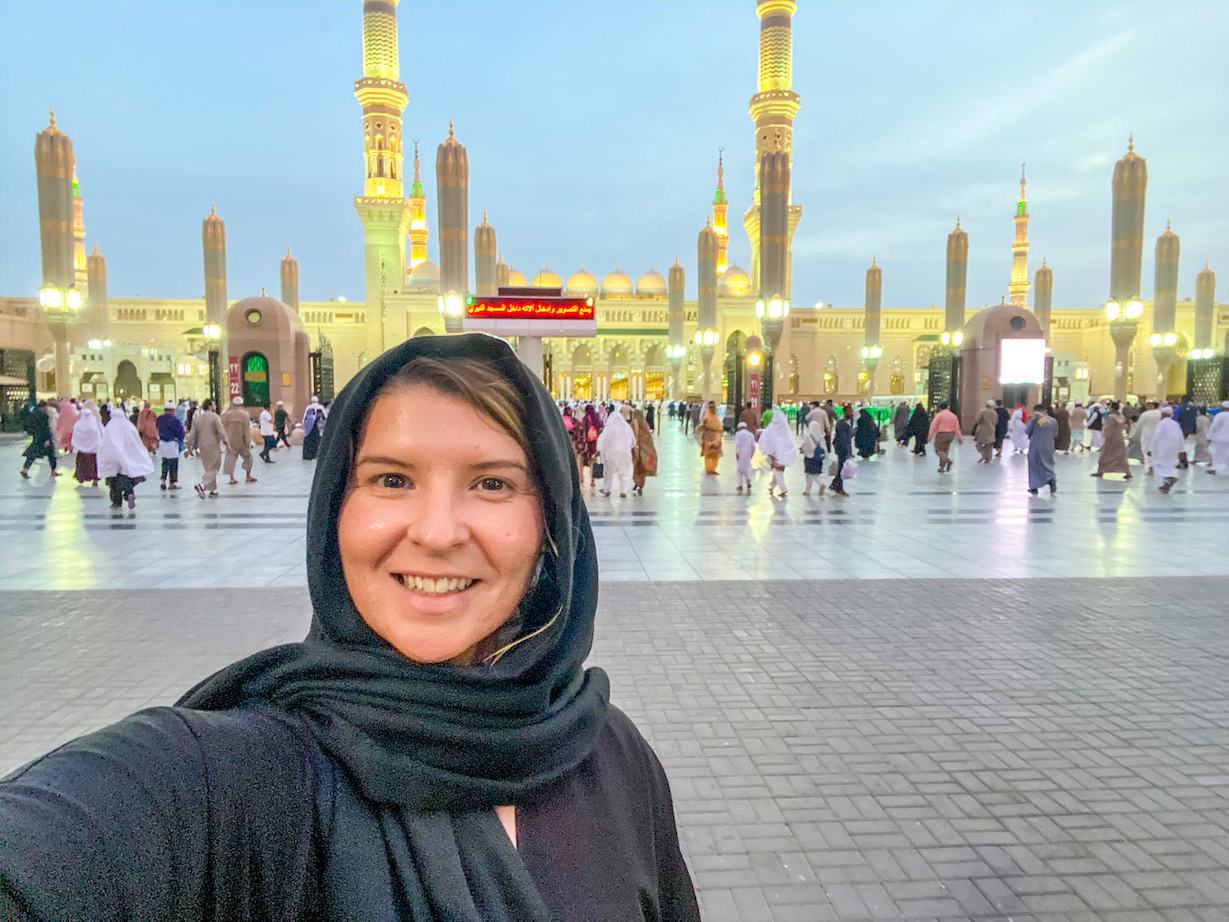
However, under the new political orientation of Riyadh, which seeks more open social reforms, which allowed women to drive for the first time in the Kingdom in 2018, after that, until recently, this was a taboo that should not even be discussed.
Soon, the Saudis were surprised by another decision allowing women to enter football stadiums, before signing resounding decisions that allowed the holding of concerts, some of them witnessed a lot that the Saudis were not accustomed to.
This was after the marginalization of the “Commission for the Promotion of Virtue and the Prevention of Vice” (CPVPV), which has had strong influence in the Kingdom for many years.
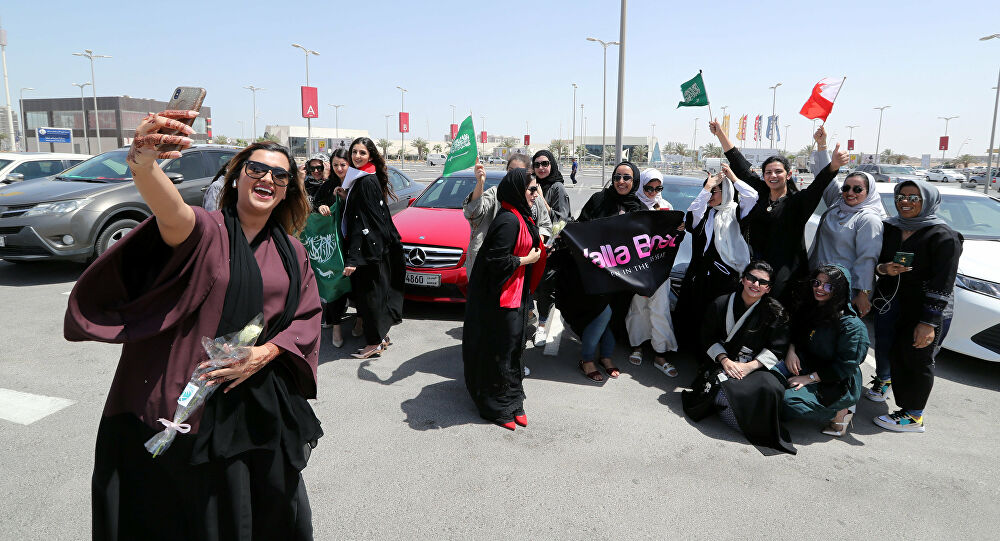
In parallel with the entertainment law led by bin Salman, many religious scholars were on their way to prison, with charges that were not announced and circumstances that were not disclosed until now. Although the names that were absent were and still are of great importance in the Saudi, Arab and Islamic arenas, such as: Salman Al-Awda and Awad Al-Qarni.
Some Saudis are disturbed by what they see as a political, social, and religious coup by Mohammed bin Salman on the constants and traditions that have been established over the years.
They are afraid of losing the basis of legitimacy and prestige upon which the Kingdom has relied for so long.
But there is also another group that seems happy with the train of absolute change led by bin Salman. They hope that the door will be opened wide for freedoms that were buried.
Observers believe that bin Salman will also bring about a gradual change in the issue of obligating Saudi women to wear the niqab and society's view of this issue, especially with a clear welcome from the West, which urges more openness over the world.
Sources
- Debates on niqab enforcement never end in Saudi Arabia
- The ['Down with the Niqab'] hashtag angers activists on the communication sites in Saudi Arabia [Arabic]
- Controversy on social media after a campaign to burn the niqab in Saudi Arabia [Arabic]
- Saudi crown prince says abaya not necessary
- Saudi Women Are Breaking Free from the Black Abaya



